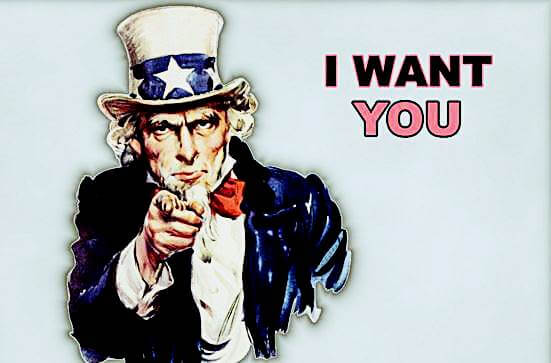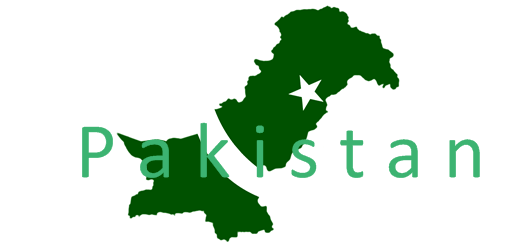Western Imperialism: It’s Causes, and It’s Impact on the World
Western Imperialism: It’s Causes, and It’s Impact on the World – By R. Rizvi
The nature of political revolutions in the West was as such that equality and basic human rights formed its very foundations. Nonetheless, the same people who claimed their inalienable rights by virtue of principles of fundamental human rights, failed to apply these same principles when they set out to colonize the world. The same people who were ready to die for their right to life, liberty, and persuit of happiness, in their conquest for colonies, killed millions of human beings who tried to claim the same rights. Some of the questions that logically come to mind, when we encounter this irony, require an analysis of the underlying causes of the Western imperialism and thus it’s impact on the world. Why did hundreds of millions of people were subjected to such misery by the people of the West, when they themsleves would not approve of it, if it were to be applied on them? Or, how did they justify their cruel methods of imperialism in the presence of standards of human rights they created for themselves? And, did the Western imperialism ever end?
Since these are very broad questions and require a considerable amount of intellectual persuit in order to give a comprehensive response, which is beyond the scope of this article. Therefore, we will focus essentially on the most important aspects of Western imperialism, it’s fundamental causes, and it’s impact on the world.
The Foundations of Western Imperialism
Hence, the first question that arises in this respect is, why did the people of the West set out to build empires in the first place? History tells us, for three basic reasons: to ensure cheap supply of consumer goods and raw materials, to establish new markets for their own goods, and to create a hegemony of the West over the rest of the world. And it all began when the demand for oriental spices and luxury goods started to rise in the West. Due to the fact that the land route was dominated by Italian merchants, and there were unnecessary tariffs added by countries from which the goods passed through, people like Christopher Colombus and Vasco de Gama began to look for a quicker and cheaper route via sea. Also, even though individuals played a key role in finding the new routes and lands, there was an important part played by the institution of banking and corporations in financing the expeditions. Banking made possible the financing, and corporations the sharing of risks and profits with little investment. East India company, for example, was established to import Indian goods and it made enormous profits. Everything was within the parameters of trade and goodwill upto this point. But the greed for more and continuous profits led these corporations to start what Gallagher and Robinson call in their writing, The Imperialism of Free Trade, “the process of subjugating the free states into the domain of formal and informal empires.”
In this regard, the scientific revolution played the key role. Three things are credited with revolutionizing the West: gun powder, compass, and printing press. Whereas the use of compass in finding the correct directions made the naval expeditions possible, and gun powder ensured military advantage, printing press played an important role in bringing about the scientific revolution by enabling the spread of ideas, such as economic theories of Adam Smith, faster and cheaper.
Eventually, the scientific revolution brought about the industrial revolution. Soon enough the domestic markets became saturated and emerged the need for new markets to dispose off the excess production. But foriegn markets could not be penetrated so easily. And so the corporations, with the help of their governments, stimulated the process of colonizing, destroying indigenous industries in the process, and killing the experienced artisans in some cases to eliminate even the slightest competition. Jawaharlal Nehru in his book, Discovery of India, explains how East India Company achieved this objective, causing millions of people to suffer under the artificially created forced unemployment. India was comprised of thousands and thousands of villages, as Fernand Braudel says in his writing, The Indian Mogul economy, and each village was a completely self sufficient unit in food and textile. It was all replaced due to the need for raw materials for British industries, by mass producing only one crop, such as cotton, in an entire region causing eventually famine and death for millions of people.
The Illusions of Western Superiority
Moreover, the people of the West had this illusion of them being more civilized then the rest of the world. Their actions implied that eating with a fork, shooting with a gun, and production by machines was all that was needed to become civilized. Therefore, they considered all the people they encountered as “savages”. Even if they were not savages, as in a very rare cases, they were not civilized either. One of the reasons was that they were not Christians. To bring their illusion of civilization to these savages, Christian missionaries were sent to civilize them. What these missionaries accomplished was simply impossible to achieve only by means of force. They brought European diseases unkown in the regions they were trying to civilize and unwittingly caused entire people to be vanished from the face of the earth, as was the case in Americas when the entire civilizations of Aztecs, Incas, and Mayas were destroyed. In any case, where they did get to preach, they taught the savages to not respond to violence with violence as it was not the way of the Christ, making the process of colonizing smooth and quick, as in Africa.
In addition to that, the people of the West had another illusion of being a superior race. Wherever they went, they treated other people as inferior only because of the color of their skin. The most horrible episode in this respect was that of slave trade. Tens of millions of people from Africa were hunted and captured like animals and were transported to Europe and Americas to the plantations.
In other places, the coloreds were simply treated as inferiors. In India, for example, all the previliges were restricted for the whites. In white areas signs were posted warning that dogs and coloreds were not allowed. Only whites could travel in the first class. The French were no different, they practised the same racist doctrine in their colonies. And for that matter, no European or American was different in this regard. People who suffered under the segregation laws in America are still alive, for the civil rights bill was passed not very long ago in 1964, and even that after immense struggle and unrest.
Hence, one must ask whether the declarations of American and French independence were mere rhetorics? All men are created equal, they say. That they are endowed by their Creator with certain inalienable rights, they go on. Among these are life, liberty, and persuit of happiness in the case of Americans; and liberty, property, security, and resistance to oppression in the French case. How ironic for these people to inflict on others what they would not allow on themselves? But as we discovered earlier, when they said “all men”, what they meant was all white, Christian men of European origin. In America, it was even further narrowed down to White Anglo-Saxon Protestant (WASP) men. Even today, if we lookup the list of American presidents, except for John F. Kennedy, who was a Catholic, every single president has been a WASP man. But this is not an isolated incident. The people of other races, ethnicity, and religions have always been considered inferior by the majority in the West.
For example, when the Chinese requested to the British crown to stop the people who were engaged in opium trafficking, the British government responded by declaring war on China. The Chinese request was simple. The British were not only taking the Chinese made goods to their country, but to balance the trade deficit were selling poison to the Chinese. But since the British did not consider the Chinese as their equals, even though opium was banned in Britain, it was all right to poison the Chinese, even if they had to fight to sell it. They defeated the Chinese and asked for huge concessions including the continuation of opium trafficking, not knowing they themselves would be facing a similar problem one day. China, incidentally, is also a good example of informal empires, where Western governments used their military muscle to yield unlimited influence without direct occupation.
Divide and Rule…Forever
One of the most important impact of the Western imperialistic ventures was the alteration of the local political structures by the colonial governments. As we have noted before, their rule was extended by means of formal and informal empires. In the case of direct rule or formal empire, since the colonial governments were not legitimate from the beginning, there was always a fear of uprising by the colonized people. The method most commonly used to maintain rule was to create divisions, escalate tensions, and encourage fighting among the different ethnic and religious groups. In other words, the infamous policy of “divide and rule” officially or unofficially was a part of the direct colonial governments. The continuation of this policy, as intended, resulted in increased tensions and disunity of entire people. As a result, when the colonial governments were forced to leave, these factional fightings remained a part of the newly freed states. Hence, if we observe any such fightings and wars in the now freed states of the so called “third world”, we must remember that it is partly the legacy of the imperialistic West.
In the event that the objectives could be achieved by means of influencing the local government, the expenses of direct rule were saved by exercising informal rule. The term “puppet rulers” is often used in this respect. Since the goal of the imperialistic ventures was not only to find raw materials, exploit natural resources, and force establish markets for industrial goods; a cultural invasion on the indigenous cultures was also a part of it. To establish Western hegemony over the rest of the ‘uncivilized, savage’ world, it was necessary to first Christianize them and then force convince them that Western values, culture, and race was better then their own.
“The Planet of the Apes”
Thus, they created a class of elites who were mentally conditioned to accept Western ways. This was an insurance policy that one day when and if they had to leave their colony, the supply of raw materials and exploitation of natural resources along with the market for their goods, would continue uninterrupted. And the slave-minded, thoroughly brain-washed elite would conitnue to ape the Western values in the hopes of becoming or at least appearing like their “superior” former subjugators and current masters by buying Western products, eating Western foods, wearing Western clothing, watching Western films, listening to Western music and speaking Western languages among other things. The undercalsses usually follow the elites. Thus, the more subtle form of informal empire would still be there in any event.
The examples are abound: The establishment of Middle eastern kingdoms, shiekdoms, and princedoms by the West and continued protection even today, in order to ensure the continuous supply of cheap oil. The Western interference in the affairs of the less developed countries, such as Pakistan, is no secret. And for that matter, the recent history of South and Southeast Asia, Africa, South and Central America is a testimony to such interference. The dictators and elites in these regions still pledge their loyalties to the US and Europeans by their actions and are thus given protection to plunder their respective countries. With the few exceptions where the Communists, as in Cuba, or more recently the Islamists, as in Iran, were able to overthrow the military/ monarchic/ oligrachic regimes, the former colonies are still in the neo-colonial shackles and are at the mercy of the slave-minded elites of their countries.
The Riches of the World Must Flow West…At All Costs
The transfer of wealth still continues from the neo-colonies to the West in the form of raw materials, agricultural products, cash reciepts from the sales of weapons and over-priced manufactured goods, looted wealth by puppet regimes and corrupt elites, and from the brain drain of what little professionals these under-developed countries could produce from their limited capital resources. The prices of the commodities and raw materials produced by these countries are determined by the West. While the manufactured and capital goods, which are produced by the West, and which are needed desperately by the neo-colonial, so called third-world countries to develop, are sold at the premium prices, also determined by the West. The disparaties between these neo-colonists and neo-colonial countries, also sometimes referred to as Haves and Have Nots, are widening with every passing year.
Every time the interests of the neo-colonists are threatened, they invoke the mantra of human rights and democracy or some other feel-good ideological facade for justification in putting down whosoever threatens their interests. But as long as their supply of cheap oil, raw materials, and cheap consumer goods, as well as the markets for their high-end products, weapons and capital goods is safe, they don’t mind the ruthless dictators and military generals, corrupt monarchs, illiterate feudals, greedy bureaucrats and similar oligarchic elites wreaking havoc with their countries.
Instead, any uprising, rebellion, opposition, and struggle against them, democratic or not, is considered a threat to the stability and is put down by all necessary means, by both covert and overt help to the corrupt regimes. All in the name of democracy, free-market and preservation of the Western way of life; which is nothing but the perpetuation of an unjust world-order and a selfish status quo, where as much as 90% of the world resources are consumed by only 10% of the world population in the West. We must remember that it was the greed for gold and the lust for luxury that started the Western imperialism in the first place. To that end, one is forced to ask whether there ever was, and will there ever be, an end to the Western imperialism?














